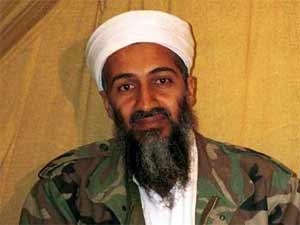
Pak, US ties plunge to new low post-Osama killing in 2011

Relations between Pakistan and the US, key allies in the decade-old war on terror, teetered from one crisis to the next almost since the beginning of the year, prompting Prime Minister Yousaf Raza Gilani to order the framing of new "terms of engagement" for the US and NATO forces in Afghanistan.
On January 27, relations between Islamabad and Washington plunged to a new low after CIA contractor Raymond Davis shot dead two men allegedly linked to the spy agency Inter-Services Intelligence on a crowded street in Lahore. The powerful Pakistani security establishment retaliated by launching a drive to flush out American agents and to disrupt an extensive clandestine network that had been created by the CIA.
Scores of CIA and US military personnel were sent home before the standoff over Davis was resolved in mid-March under an Islamic law ?" over USD two million were paid, reportedly by the US, to the families of the dead men as blood money and the CIA contractor was hurriedly flown out of Pakistan.
The strains caused by the Davis affair had barely been addressed when bilateral relations were hit once again by the US Special Forces raid on May 2 that killed the world's most wanted man -- al-Qaeda chief Osama bin Laden -- in a compound located a stone's throw from the Pakistan Military Academy in the garrison town of Abbottabad.
As top US officials contended that the Pakistani military was either complicit or negligent in failing to detect bin Laden's presence in Abbottabad -- where he had reportedly lived for five years -- Washington imposed curbs of civil and military aid and pressured Islamabad to act against other terrorist leaders and groups based on Pakistani soil, including the Haqqani network.
Several reports said Pakistan Army chief Gen Ashfaq Parvez Kayani faced open resentment from army officers as he toured garrisons in the wake of the Laden raid to shore up morale among humiliated military personnel.
The strains between Islamabad and Washington affected efforts to find a political solution to the war in Afghanistan. Pakistan persistently spurned US pressure to launch a military operation in North Waziristan, which American and Afghan officials say is a safe haven for the militant group Haqqani network.
In the aftermath of the raid against Laden, the Pakistan government organised a joint session of parliament and an "All Parties Conference", which passed separate resolutions that called for NATO supply routes to be shut in the event of another attack and for giving "peace a chance" in the country's restive northwest.
Just as US-Pakistan ties seemed to be heading towards an even keel, a cross-border NATO air strike on two military posts killed 24 Pakistani soldiers on November 26 and took relations to a fresh low. Within hours, Pakistan retaliated by closing all NATO supply routes -- used to transport half the supplies needed by US and allied force in Afghanistan -- and giving the US an ultimatum to vacate Shamsi airbase, reportedly used by CIA-operated drones.
Prime Minister Gilani's cabinet decided to boycott the Bonn Conference on Afghanistan on December 5 to protest the NATO attack, raising fresh questions about Pakistan-US cooperation in the endgame in the neighbouring country and in efforts to bring the Afghan Taliban to the negotiating table.
Gilani ordered a sweeping revamp of Pakistan's ties with the US, saying new "terms of engagement" would be framed by a joint session of parliament on the basis of recommendations made by top diplomats and the Parliamentary Committee on National Security.
Towards the end of the year, the Laden raid had a fallout on domestic politics when Pakistani-American businessman Mansoor Ijaz made public an alleged memo that was sent to the US military seeking help to stave off a military takeover in Pakistan in May.
The memo, which Ijaz claimed he drafted on the instructions on Pakistan's former envoy to the US, Husain Haqqani, said a new national security set-up would be created after flushing out officials with links to extremists.
Acting on a batch of petitions, the Supreme Court ordered an inquiry into the Memogate scandal even though Gilani had already asked a parliamentary panel to probe the matter.
The civilian government and the military adopted divergent stands in the apex court, with the army and ISI chiefs calling for a probe while the government insisted that the petitions regarding the memo should be dismissed.
Amidst the crisis over the memo, President Asif Ali Zardari abruptly left for Dubai on December 6 to seek treatment for a heart condition, triggering speculation that the unpopular and embattled head of the Pakistan People's Party was on the verge of resigning due to pressure from the army after his name was linked to the Memogate scandal.
PTI


 Click it and Unblock the Notifications
Click it and Unblock the Notifications


































